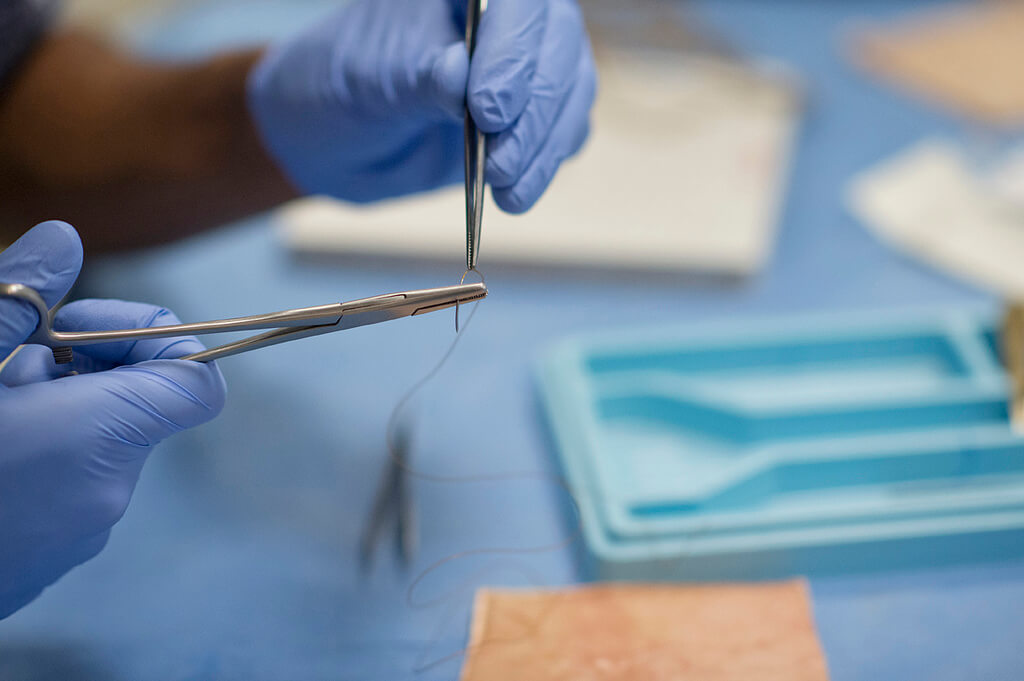Medicine in Australia. Australia ranks sixth in the world in terms of health care. In the features of the Australian medical system
Medicine in Australia
The first hospital on the Green Continent was founded by British colonists in 1788. The hospital was a wooden hut with a thatched roof and was intended for convicts. The treatment left much to be desired. Poor sanitation, poor food and little space – in such conditions, patients died more often than they recovered.
Now, according to the analytical agency Bloomberg, Australia ranks sixth in the world in terms of health care. We will understand the features of the Australian medical system in this article.
State health insurance
State health insurance – Medicare – is available to citizens of the country, refugees and immigrants with a permanent visa. Medicare is funded by a mandatory health care tax, the Medicare Levy, which is 2% of your monthly taxable income. Even if there is only one worker in the family, the insurance covers all other family members. Low-income families (whose annual income is less than $21,000), retirees, students, and the unemployed are exempt from the medical care tax.
The country's government annually approves official rates (Schedule of Fees) for various types of medical care. The services on this list are fully covered by Medicare. Public hospitals provide care according to official rates. The exceptions are physiotherapy, manual therapy and dentistry.
Private doctors are allowed to set premiums for their services, so their cost is higher than the official ones set by the state. Medicare reimburses 85% of the official cost of treatment. The remaining 15% and the premium set by the clinic will have to be paid from your own wallet. You must bring your payment receipt to the Medicare office to receive reimbursement.
Some private doctors work on a direct payment system (Bulk Billing) – they provide assistance in accordance with official rates. In this case, you will not have to pay extra. The reception registers the patient's Medicare card number, after the medical care is rendered, the doctor sends the bill to the Medicare office and receives payment.
The good news for expectant mothers is that childbirth is one of the free services. However, pregnant women are considered ordinary patients here, special care and management of pregnancy is not provided. Childbirth is attended by midwives, and a doctor is called only in case of complications. A more attentive approach and respect for women in labor are offered by private clinics. But it is not cheap – about 7-8 thousand dollars.
To get public insurance, you need to visit a Medicare office and fill out an enrollment form. You must have a passport with a valid visa with you.Registration form can be filled in advance on the website of the Ministry of Social Services of Australia. Carta will be ready in one or two weeks.

Medicine in Australia: Private Medical Insurance
Private companies offer insurance for any lifetime: from breast increases to an unsuccessful shave. But usually they appeal when the help of a specialist, operation or other medical examination is required. These services can be obtained in public hospitals, but for this will have to wait for their turn for several months.
The private insurance policy compensates for the costs of services that are not covered by Medicare – physiotherapy, challenge the ambulance, visit the manual therapist or dentist. Without private insurance, the treatment of teeth in Australia will cost a round sum – one seal can cost about $ 150.
The cost of the insurance policy depends on the insurer company. Compare prices here.
The government's government stimulates residents to insure health in private companies to reduce the burden on the state budget. For this purpose, certain programs are implemented.
Medicare Levy Surcharge. Medicare owners who do not have private health insurance and whose annual income above established (88 thousand dollars for an individual and 176 thousand dollars for the family), pay additional tax allowances for a total of 1% of medical care.
Private Health Insurance. According to the state compensation program, a part of the cost of a private medical policy is returned. The amount of compensation depends on the annual income of the insured person or family. More about this here.
Lifetime Health Cover. The program of indefinite health insurance is aimed at an increase in the number of young people with a private insurance policy. Private health insurance after 30 years will cost 2% more expensive than persons younger than this age. Every year of life, the interest rate will grow by 2%. If the policy cost 150 dollars in 30 years, then in 40 years it will be 20% more expensive – $ 180. True, infinite insurance costs will not grow to grow – maximum price can grow by 70%.
There are relaxation for immigrants – it is necessary to receive private insurance throughout the year from the date of receipt of Medicare. If this is not done, every year insurance premiums will also increase by 2%.
MediBank Private
MediBank Private is a private insurance company Australia, which has been around for 40 years and has four million customers. MEDIBANK customers can be not only Australian citizens, insurance are provided to tourists, employees under contract and foreign students without a permanent visa, which is not available to Medicare.
With this insurance, you can get treatment in public and private hospitals, compensate for dental services and challenge the emergency.
But to cure diseases and injuries, obtained before arriving in Australia, to pass a psychiatric examination or make a cosmetic operation will not work.In addition, in order to prevent health tourism in local hospitals, there is a "waiting period" for treatment of certain diseases, which can last from six months to three years. For example, the treatment of eye diseases will become available after six months of residence in the country, and the treatment of diabetes after two.
Health Care Card
Beneficiaries of Centrelink, a department of the Australian Department of Social Welfare, are eligible for the Health Care Card, which provides additional benefits for buying medicines and receiving medical care, including emergency and dental services. Read more about benefits here.

Medicine in Australia: pharmaceutical benefits
Citizens and permanent residents of Australia with Medicare in hand receive a pharmaceutical discount (Pharmaceutical Benefits Scheme). The discount is valid only for medicines that are issued by prescription.
Medicines in Australia are expensive – prices can go up to $300, but with a discount, the price will be only $38. And for pensioners and holders of the Health Care Card – $ 6.
For those who spend a lot of money on prescription drugs, there is an additional discount – PBS Safety Net. If during the calendar year medical expenses amounted to $1,475, then for the rest of the year the price for them will be only $6.
For retirees and Health Care Card holders, drugs will be provided free of charge, provided that the costs for them for the year amounted to $372.
To qualify for the Safety Net discount, you must keep a record of your prescription drug purchases. A special registration form can be obtained at the pharmacy.
If you need help
In Australia, you will not be able to immediately get an appointment with a specialized doctor. First you need to visit a general practitioner or "GP" (General Practitioner), who, after examination, will refer you to a specialized doctor for further examination, diagnosis and treatment.
Usually, each family has a permanent "G.P." – a family doctor who knows the medical history of all family members, writes out medicines and prescribes treatment. GPs usually work on a direct payment system. You can find a general practitioner using this service.
In the event of an accident and critical condition, you should immediately go to the casualty or emergency department (Emergency) in a public hospital. A preliminary examination by a general practitioner is not required! You need to take your Medicare card and Health Care Card with you if you have it.
If it is difficult to get to the hospital on your own, you need to call an ambulance (Ambulance). Ambulance in Australia is a paid service. The cost depends on the state and the condition of the patient. The number for calling an ambulance is 000. You can call from the numbers of any telephone operators and even without a SIM card.
Community Health Centers
Health consultations, dentists, physical therapists, and other specialists are available at Community Health Centers.
Community health centers provide health services to women, immigrants, disabled people and families with small children (free of charge for families with children of preschool age, including vaccination of the child).
In Australia, childhood vaccinations are taken very seriously. Kindergartens may refuse to accept a child if they are not vaccinated. Some Child Care Rebate also require the child to be vaccinated.
Read more about vaccinating children here.
Medicine in Australia: Protecting the health of the elderly
In Australia, you don't have to worry about getting old. Elderly people who for some reason need care or supervision can contact Aged Care Assessments Teams. The organization will assign home care or referral to a nursing home depending on the health status and wishes of the elderly patient.
Home care includes not only medical care, but also help with cleaning, cooking and personal hygiene. The cost of such services depends on marital status and the size of the pension. Online calculator for calculations.
In nursing homes (Nursing Home or Aged Care Home), elderly people are cared for around the clock. They undergo medical procedures, attend recreational activities and receive the necessary medical care.
The cost of the stay depends on the family and financial situation of the guest.
